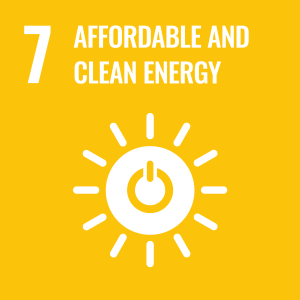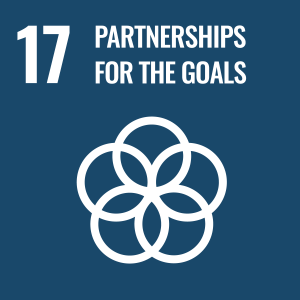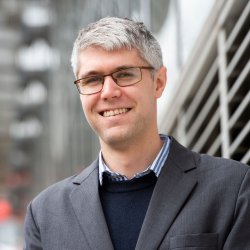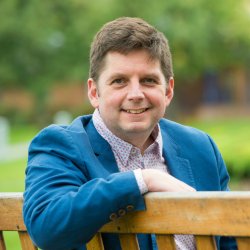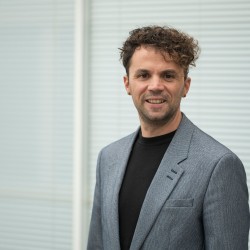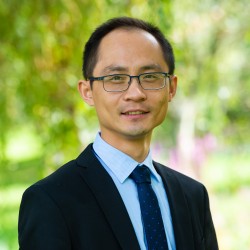Institute for Sustainability announces winners of Innovation Contest
The Institute for Sustainability has announced the winners of its inaugural Innovation Contest, marking a significant stride towards tackling real-world challenges in sustainability.
The contest exemplifies the Institute’s role as a catalyst for change, promoting transdisciplinary collaboration and the adoption of sustainable practices.
From healthcare decarbonisation to education sustainability and plastic alternatives, these initiatives underscore the Institute's commitment to actionable solutions.
Launched during the Institute's inaugural Annual Showcase in December 2023, the contest saw fellows engage with critical innovation challenges posed by external organisations.
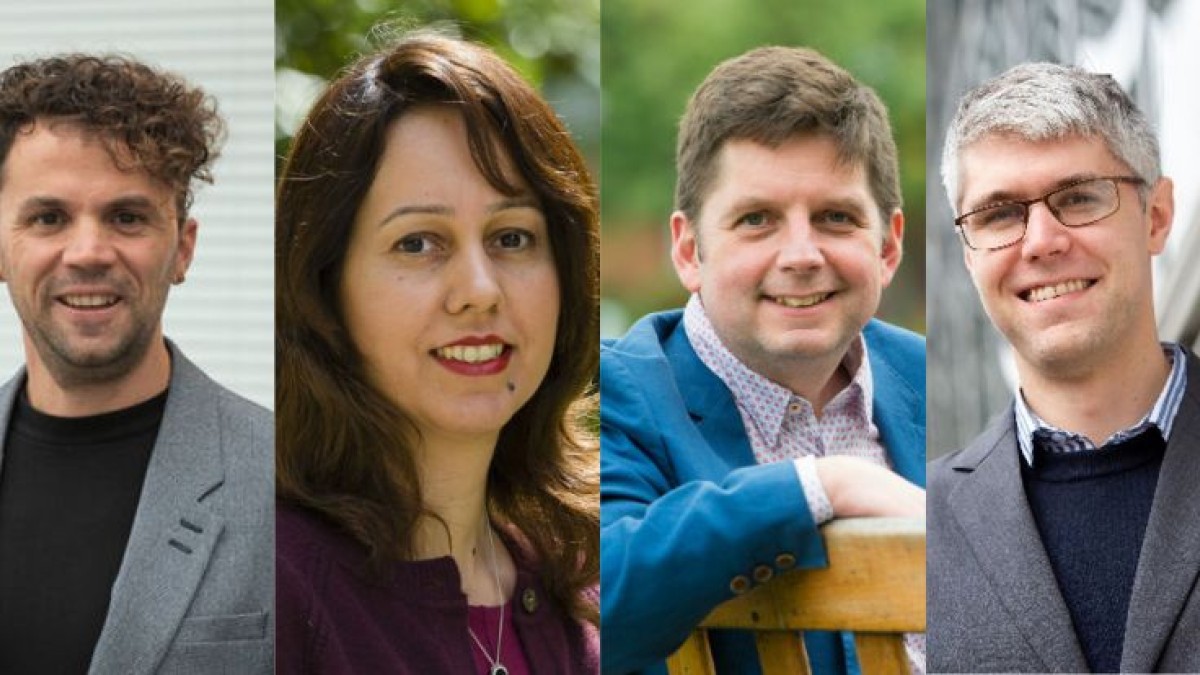
The winners are:
| Winners | Challengers | Project |
| Dr Matteo Giusti and Winchester Science Centre | Wonderseekers | ‘Our Place(s) on Earth’ |
| Dr Michael Short, Associate Professor Mona Chitnis, Dr Benyi Cao, Professor Qiong Cai, and Dr Marco Funari | Ashford and St Peter’s Hospitals NHS Foundation Trust | ‘Strategic decarbonisation planning for hospitals as a systematic whole systems approach’ |
| Professor Joseph Keddie, Dr Isabella Guido, and Dr Zhenhua Feng | Pulpex | ‘Quality Control for Paper Bottles Using Computer Vision' |
“The selection of the various applications for the Innovation Contest demonstrates that harnessing the expertise of the 'academic crowd' is an effective way to develop new ideas and tackle complex problems, which require a transdisciplinary and cross-sectoral approach,” said Prof Lorenzo Fioramonti, Founding Director at the Institute. “From the process of decarbonisation in the health sector and sustainability in education to the development of alternatives to plastic, our research community is showing that science can be hands-on in providing systemic solutions to the policy and business world.”
The Institute for Sustainability’s Innovation Hub will now work with the winning teams to get the projects underway, facilitating collaboration between scientific experts and partner organisations.
“The Institute's Sustainability Innovation Hub acts as a platform to bring together scientific experts with organisations,” said Nathalie Hinds, the Institute’s Director of Operations, Innovation and Partnerships. “It fosters an ecosystem that encourages collaboration with a commitment to turn research into actionable solutions. We were pleased to have received significant interest from our Fellows to take part and wish the teams success in their project delivery. The Hub is here to support and will monitor the impact generated from these initiatives, with a view to run more contests in the future.”
Our Place(s) on Earth
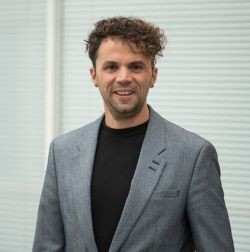
This challenge was set by Wonderseekers and aims to encourage a living, participatory exhibition in the gallery space at Winchester Science Centre and a community activity programme.
The purpose of the project is to encourage children’s connection with nature through a series of on-site and home-based activities, that would synergistically promote nature connectedness in everyday settings.
Dr Giusti will be collaborating with Winchester Science Centre to develop activities that would promote children’s understanding of biodiversity and soil health, to facilitate connection with nature in children’s minds which could lead to a lifelong engagement and community involvement in biodiversity conservation.
Dr Giusti (pictured) said: “I am ecstatic to collaborate with the expert colleagues at the Winchester Science Centre. We are looking forward to design experiences that can lead children to a lifelong commitment to sustainable actions.”
Kate Wasche (Director of Fundraising, Wonderseekers) said: “We would be delighted to work with Matteo, with whom we have had several scoping conversations. There is strong alignment between our objectives and a clear and strategic focus for this initial piece of work, potentially building and leading to a longer-term partnership.”
Strategic decarbonisation planning for hospitals as a systematic whole systems approach
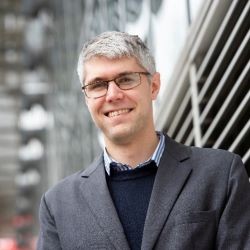
This challenge, set by Ashford and St Peter’s Hospitals (ASPH) NHS Foundation Trust, will combat carbon emissions in a hospital trust setting by developing a systematic decarbonisation plan through energy demand reduction, techno-economic modelling, and systems approaches.
The plan involves developing optimisation and econometric models for different energy strategies to achieve net-zero, comprising multi-disciplinary approaches that would enable tackling the challenge from many different angles. The research team will be looking at a wide range of potential factors that affect ASPH’s energy consumption and provide robust solutions for decarbonisation at ASPH.
Dr Short (pictured) said: “The NHS contributes around four per cent of England’s carbon emissions, and so it is a crucial piece of the Net-Zero puzzle. Hospitals are large, complex places with unique challenges including many buildings with different designs and thermal properties requiring well-ventilated, climate-controlled spaces, large pieces of power-hungry equipment, and many visitors and employees using the spaces in different ways and travelling via different transport modes.
“To decarbonise such a complex place, we need new systematic and whole-systems tools that consider the uniqueness of each hospital and may require a suite of technologies and solutions from building retrofit and renewable on-site power generation, to changing the way these spaces are used and the modes of transport. We are looking forward to working closely with ASPH staff to develop an achievable and realistic plan for their hospital, while also developing new tools and methods that can be applied more widely to other NHS Trusts.”
Sue Wales (Head of Strategic Transformation, Ashford & St. Peter’s Hospitals) said: “ASPH’s preferred proposal is with Michael Short and the Energy project. We would love to work with the team on this. We are so pleased to be part of this challenge with the Institute and are committed to working well with the teams from the University.”
Quality Control for Paper Bottles Using Computer Vision

Pulpex Ltd. is developing a wood fibre bottle, which is a new type of sustainable packaging that is recyclable in the paper waste stream. They set the challenge of devising methods for the inspection of their bottles during the manufacturing process. The research team will be investigating the use of computer vision as a fast and simple method to identify defects.
With increased confidence in the quality, Pulpex aims to expand the uptake of bottles by brands in various sectors, including food and beverages, homecare, and personal care products. With the combination of expertise in sustainable materials, thermal imaging, machine learning, and computer vision, the research team will be able to support Pulpex with a new means of quality control.
Prof Keddie (pictured) said: "This interdisciplinary project will address a challenge set by Pulpex in the manufacture of sustainable packaging. With funding from the Institute for Sustainability, we will make a real-world difference in developing paper bottles to replace plastics that have devastating effects on the environment."
Scott Winston (CEO, Pulpex) said: “A very promising prospect for a project! This is a strong proposal which builds relationships for the future with a broader group in the University. Very exciting potential.”
Related sustainable development goals
